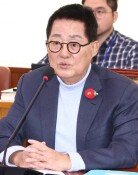Yoon’s authoritarian actions spark doubts about democratic values
Yoon’s authoritarian actions spark doubts about democratic values
Posted December. 26, 2024 07:43,
Updated December. 26, 2024 07:43
Revelations surrounding President Yoon Suk Yeol’s alarming declaration of martial law on December 3 and the reckless actions of key figures involved, including the defense minister, have cast a shadow over his vision for the Republic of Korea. The Korean people are now questioning the ideals he cultivated during his two years and seven months in office. His actions appear fundamentally detached from the principles of democracy and republicanism enshrined in the Constitution and earned through the sacrifices of countless citizens. This has led to growing concerns that Yoon harbors a vision of returning to an authoritarian regime.
Yoon’s decision to deploy armed soldiers to the National Assembly at midnight and forcibly remove members of parliament—who were constitutionally seeking to revoke the martial law—marks a disturbing violation of constitutional principles. According to the martial law commander, Yoon directly ordered, “Destroy the door and break in because it seems the quorum for resolution has not been reached.” This corroborates allegations of insurrection and constitutional violations. Even more unsettling is that Yoon appeared to embrace unverified claims from far-right YouTubers about election fraud, acting on those claims without legal scrutiny.
President Yoon has long regarded the National Assembly as an ineffective institution, and following the general election, he seemingly targeted it for dismantling. His refusal to heed calls for cooperative governance highlights his disregard for the fact that, like the National Assembly, he is an agent of public sentiment. Yoon narrowly won the presidential election by just 0.73 percentage points. Yet, he wielded executive power unilaterally, labeling the opposition party as an anti-state force, which achieved a landslide victory in the general election. On the night of the martial law declaration, Yoon reportedly handed a list of arrestees to the National Police Agency chief, including the Chairman of the National Assembly, the leaders of both ruling and opposition parties, and a former Chief Justice of the Supreme Court. This moment will be remembered as a profound erosion of the Korean people's dignity and democratic ideals.
Since taking office, Yoon has taken numerous steps backward in Korea's democratic journey. He ceased attending the National Assembly in 2024, becoming the first president since the 1987 constitutional amendment to skip its official opening. He also broke an 11-year tradition of delivering the annual budget proposal address in person. Yoon revived military parades on Armed Forces Day, holding them in consecutive years (2023 and 2024)—a practice last seen during the authoritarian Chun Doo-hwan administration. Many observers argue that Yoon has turned back the political clock by 45 years. His infamous campaign remark—“Except for the coup d’état and the massacre of the May 18 Democratization Movement, I think Chun did well in politics”—now seems like a prelude to the current crisis.
Despite his 26 years of public service, Yoon’s governance has been far from democratic. He displayed a temperamental and authoritarian style, monopolizing discussions and suppressing debate. Reports indicate that even his cabinet members, whom he appointed, described themselves as “rats before a cat” under his oppressive leadership. Yoon sought strong authority but communicated with only a few, isolating himself.
Yoon has also undermined the rule of law, a cornerstone of democracy. By being harsh toward opposition parties while showing leniency toward his wife, Yoon eroded trust in the prosecution's authority. Ironically, he once indicted a former president for election interference, yet he and his wife have faced allegations of meddling in the People Power Party’s parliamentary nominations. Despite audio recordings of his involvement surfacing, Yoon dismissed the claims, only for additional evidence to expose his falsehoods.
The collapse of Yoon’s presidency is not solely due to the martial law declaration but stems from a broader pattern of dogmatism, self-righteousness, and disregard for democratic principles. His authoritarian tendencies—marked by shutting out staff, opposition parties, and public opinion—have driven the nation into crisis. While Korea’s constitutional and institutional frameworks may have flaws, Yoon’s position at the pinnacle of the system and his authoritarian governance style have precipitated this profound breakdown in democratic governance.







